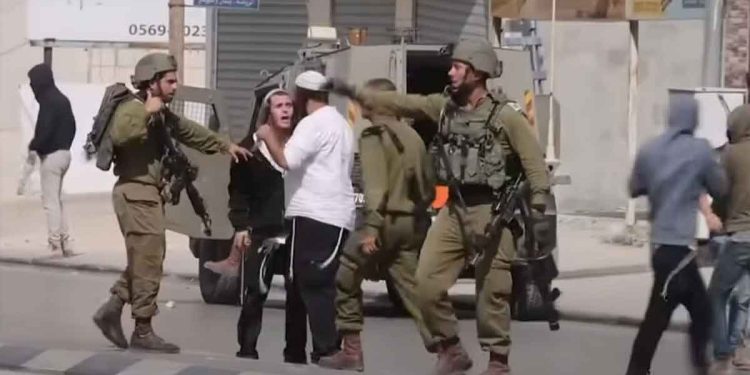Israeli settler violence against Palestinian civilians in the occupied West Bank continues to escalate, with recent incidents highlighting a pattern of systematic attacks aimed at displacing communities and asserting control over Palestinian land and resources. Human rights observers report an alarming increase in assaults that target not only individuals, but also livelihoods and cultural heritage, raising concerns of a coordinated effort to impose new demographic and geographic realities by force.
In the northern Jordan Valley, settlers detained a herd of cattle belonging to Palestinian farmer Rafeh Mohammed Faqha while he was grazing them in the al-Hamma area. The incident has been viewed as an attempt to intimidate residents and assert control over privately owned property, in a climate where legal accountability for such actions remains largely absent.
In occupied East Jerusalem, approximately 180 Israeli settlers entered the courtyards of the Al-Aqsa Mosque under the protection of Israeli police. The incursion, which included religious rituals performed within the holy compound, constituted a clear violation of the sanctity of the site and reflected broader efforts to impose new claims over the city’s sacred spaces.
Elsewhere in the southern West Bank, settlers expanded the Karmel settlement into privately owned Palestinian land in the village of Umm al-Khair, displacing residents and sparking confrontations. Four individuals, including a woman, sustained injuries during the clashes, while Israeli forces used stun grenades and tear gas to disperse residents and detained several individuals attempting to defend their property.
In the town of Azzun, east of Qalqilya, settlers uprooted 180 trees—some more than 15 years old—damaging olive and citrus groves and destroying irrigation systems and agricultural equipment. The act, which also included theft and vandalism, further undermined the economic viability of farming communities already under stress from land confiscation and movement restrictions.
These incidents are part of a wider and well-documented pattern of settler expansion and land appropriation, often carried out with the tacit or overt support of Israeli military forces. Many Palestinian communities now find themselves encircled by settlements, subjected to daily threats, and stripped of basic protections under international law.
The targeting of civilians, destruction of property, and disruption of access to natural resources violate several provisions of international humanitarian law, including the Fourth Geneva Convention, which prohibits the transfer of the occupying power’s civilian population into occupied territory and the destruction of property belonging to protected persons. Despite these legal frameworks, accountability remains elusive, and such acts continue in a context of growing impunity.
The increase in settler violence underscores the urgency of international action to uphold the rule of law and protect Palestinian civilians from further displacement and harm. Without meaningful intervention and enforcement of international legal norms, the current trajectory threatens not only Palestinian communities but also the broader foundations of justice and human rights.


























